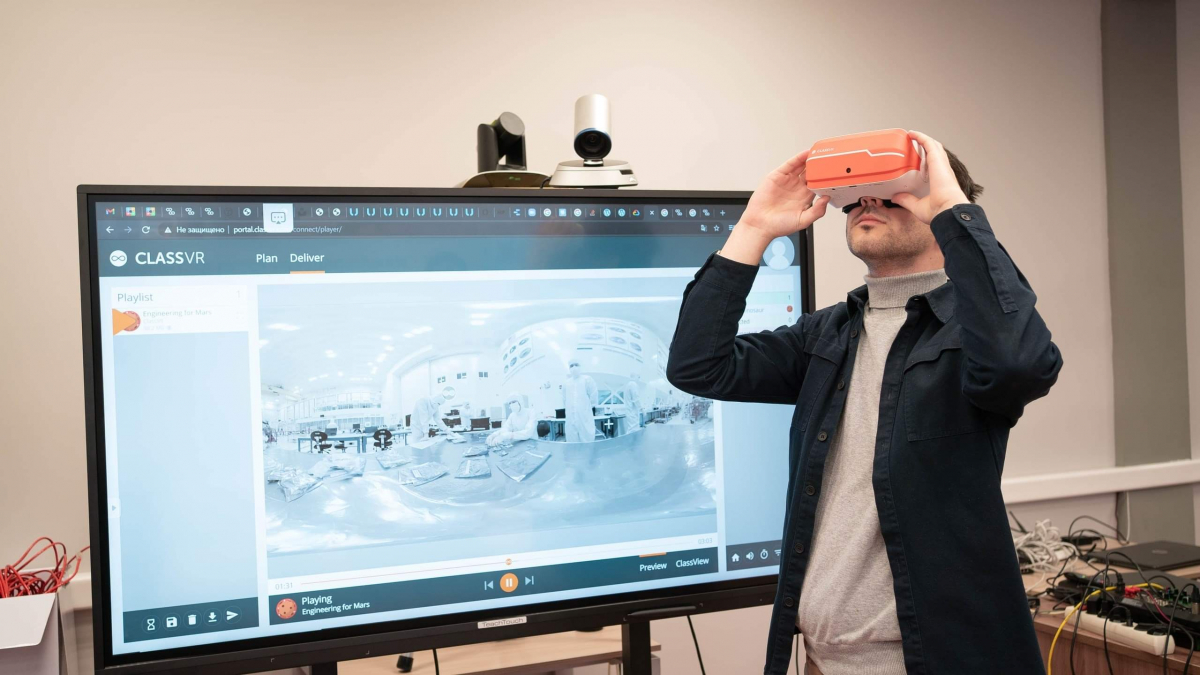Russia-1: Biggest Breakthrough in Using Chatbots by Scientists from the Linguistics University of Nizhny Novgorod
The Russian television channel Russia-1 aired a story about the new development of the LUNN Research Laboratory of Artificial Intelligence and Cognitive Studies – virtual assistants for learning foreign languages. Who would not want a personal robot assistant? Evgeny Karpov was the first journalist to see product of the Nizhny Novgorod linguists that will help make learning a foreign language a lot more convenient and entertaining.
"Chatbots are becoming increasingly popular in education because of their simple interface," the correspondents say. "It is the scientists of the Linguistics University of Nizhny Novgorod who have made the greatest progress yet with chatbots. They created an assistant that can teach words and phrases in a foreign language, knows how to "listen" and focus the student's attention on applying phonetic norms correctly, which ultimately enables an effective dialogue.
Pavel Salaev, research assistant at the LUNN Research Laboratory of Artificial Intelligence and Cognitive Studies explains: "The bot uses neural networks to understand aspects of speech and distinguish between them. If one says, for example, 'breakfast', the bot can understand that it can mean either 'full English breakfast' or simply 'breakfast'. In other words, it is adapted to synonym rings. Here the bot outperforms language teachers who are seldom native speakers of the foreign language. Besides, chatbots can help master perfect pronunciation. Pronunciation alone, however, is of little use without proper speech patterns required in a particular situation. This is another area of our developments. Our plan for the near future is to put students in the language environment by creating virtual space."
Rector of LUNN Zhanna Nikonova carries on: "Learning foreign languages contributes to improving human cognitive abilities. In the modern era, we ought to put artificial intelligence at the service of linguistics education."
With both developments now being tested in-house, the university aims to roll out these language-teaching products to the general public.
